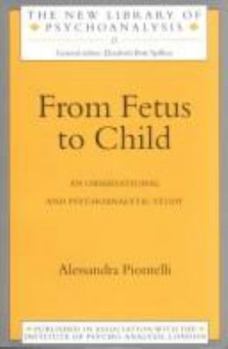From Fetus to Child: An Observational and Psychoanalytic Study
Select Format
Select Condition 
Book Overview
The use of ultrasonic scans in pregnancy makes it possible to observe the fetus undisturbed in the womb. Dr Alessandra Piontelli has done what no one has done before: she observed eleven fetuses (three singletons and four sets of twins) in the womb using ultrasound scans, and then observed their development at home from birth up to the age of four years. She includes a description of the psychoanalytic psychotherapy of one of the research children, and the psychoanalysis of five other very young children whose behaviour in analysis suggested that they were deeply preoccupied with their experience in the womb.
Dr Piontelli has discovered what many parents have always thought - that each fetus, like each newborn baby, is a highly individual creature. By drawing on her experience as a child psychotherapist and psychoanalyst as well as on her observational research, she is able to investigate issues relating to individuality, psychological birth and the influence of maternal emotions during pregnancy. Her findings demonstrate clearly how psychoanalytical evidence enhances, deepens and supports observational data on the remarkable behavioural and psychological continuities between pre-natal and post-natal life.





